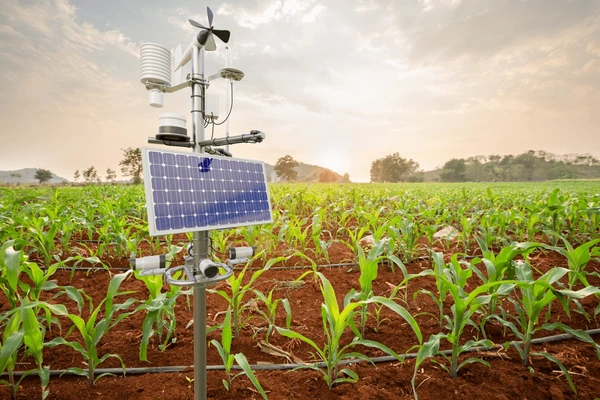How Technology Is Enabling Smart Agriculture Practices

Technology is transforming agriculture through the integration of innovative tools and methodologies. IoT sensors provide granular data on soil and crop conditions, while AI algorithms analyze this information to guide decision-making. Precision farming techniques further enhance resource efficiency, optimizing water and nutrient use. As these advancements reshape farming practices, they raise critical questions about sustainability and the future of food production in an era marked by significant environmental challenges. What lies ahead for this evolving landscape?
The Role of IoT in Modern Farming
As agriculture faces increasing pressures from climate change and population growth, the integration of the Internet of Things (IoT) into modern farming emerges as a transformative solution.
Through sensor networks, farmers can monitor soil moisture levels, crop health, and environmental conditions in real time.
Coupled with data analytics, these technologies enhance decision-making, optimize resource usage, and ultimately promote sustainable agricultural practices.
See also: How Blockchain Is Changing the Financial Industry
Harnessing AI for Crop Management
How can artificial intelligence (AI) revolutionize crop management in agriculture?
By leveraging advanced algorithms, AI enhances crop prediction accuracy, allowing farmers to anticipate growth patterns and environmental impacts.
This data-driven approach facilitates yield optimization, empowering growers to make informed decisions on resource allocation and pest management.
Ultimately, AI transforms traditional practices, fostering a more sustainable and efficient agricultural landscape that aligns with the pursuit of freedom in farming.
Precision Farming Techniques and Their Benefits
While traditional farming methods have often relied on broad approaches to cultivation, precision farming techniques are redefining agricultural practices by utilizing data-driven insights and technology.
By leveraging data analytics, farmers can achieve yield optimization through targeted interventions, such as precise irrigation and nutrient application.
This innovative approach empowers growers to maximize productivity while minimizing resource waste, fostering a more efficient and sustainable agricultural landscape.
The Impact of Technology on Sustainable Agriculture
Although traditional agricultural practices have often prioritized productivity over sustainability, the integration of technology is revolutionizing this paradigm.
Advanced tools, such as drones and IoT sensors, facilitate sustainable practices by optimizing resource usage and reducing waste. These eco-friendly solutions empower farmers to adopt regenerative methods, ensuring long-term ecological balance while enhancing yield.
Consequently, technology fosters a harmonious relationship between agriculture and environmental preservation.
Conclusion
In the landscape of agriculture, technology emerges as a vibrant tapestry woven with threads of IoT, AI, and precision farming. This intricate network not only monitors the soil’s pulse and the crops’ vitality but also paints a future where sustainability flourishes alongside productivity. As farmers embrace these innovations, the fields transform into data-driven ecosystems, where every decision is informed and every resource is cherished, ensuring that the bountiful harvests of tomorrow are cultivated with care for the planet.




